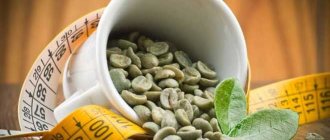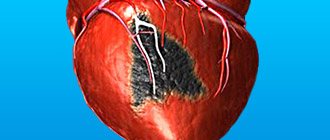Many people start their day with a cup of coffee. There are even special alarm clocks that brew coffee at a given time so you can wake up and immediately drink your favorite drink without getting out of bed. And of course, we remember about such a moment of care as coffee in bed. But are they worries? Doctors around the world are warning about the dangers of drinking coffee on an empty stomach. But not everyone understands the consequences of coffee on an empty stomach, and knows what effect it has on the body. Let's look at all the benefits and harms of your favorite drink.
Coffee on an empty stomach - consequences
It is believed that caffeine causes the greatest harm: it irritates the nervous and digestive systems, causes heartburn, abdominal pain, bloating, etc. But in fact, the problem is chlorogenic acids (by the way, they are even found in decaffeinated coffee), which irritate the walls of the stomach. The acidity rises, but there is nothing to digest.
After just a few weeks of regularly drinking coffee on an empty stomach, you may feel nausea and heartburn. Over time, this can develop into gastritis, then into an ulcer, and the most severe option – oncology.
When we wake up, the body's hormonal background is rearranged, the hormone cortisol is released, which is precisely responsible for vigor and the ability to react quickly. Constantly drinking coffee on an empty stomach suppresses this hormone, the body gets used to external stimulation and stops producing it . This is precisely what explains the complaints from people who simply cannot wake up normally without coffee. Some time after quitting coffee, the body returns to normal.
Effect of coffee on an empty stomach
To understand whether you can drink coffee on an empty stomach, you should first understand what effect the drink consumed on an empty stomach has on the body.
Caffeine causes maximum harm. It irritates the digestive as well as the nervous system. If it is present in a drink in excess, it provokes an increase in irritability, nervousness, and anxiety.
Drinking coffee before meals causes the stomach to secrete hydrochloric acid, which is necessary for processing food. At the same time, he has nothing to digest, since the food has not yet arrived. The result is pain in the abdomen, heartburn, bloating, and nausea. In addition, intestinal motility is stimulated. There is a frequent urge to defecate. Even if you eat later, the food will quickly pass through the gastrointestinal tract and will not be fully absorbed. Accordingly, the body will not receive the nutrients it needs.
The consequences of systematically drinking coffee before breakfast and disruption of digestive processes are even more serious. Initially, gastritis and ulcers develop, and later there is a risk of cancer. Such problems can only be avoided by drinking a coffee drink some time after a meal.
It has also been noted that drinking espresso before meals leads to loss of appetite. When consumed, the feeling of hunger is muffled. Accordingly, a person often refuses a planned meal. After a while, the appetite appears, you have to eat a larger portion. This increases the risk of weight gain.
After waking up, the body experiences hormonal changes. There is an active synthesis of the hormone cortisol, which is responsible for vigor and quick reaction. With its help, you can wake up in the shortest possible time and start doing urgent things.
If you resort to drinking coffee drinks every day on an empty stomach, the body begins to get used to the artificial stimulation, and the production of cortisol will stop. This explains why coffee lovers cannot wake up without a cup of their favorite drink. If you temporarily give it up, the condition will return to normal.
The harm and benefits of coffee on an empty stomach
Much has already been said about the dangers of coffee on an empty stomach - problems with the digestive system, negative effects on the nervous system, hormonal imbalance.
But all this is possible only with regular coffee consumption, when almost every day begins with it. Occasional drinking of coffee on an empty stomach, on the other hand, may be beneficial. Coffee relieves stress, helps you concentrate, collect your thoughts, and ultimately invigorates. If you have important things planned in the morning, or because of jet lag you haven’t slept much and have important tasks to solve, you can drink a cup of coffee on an empty stomach without much harm. However, after a while it is still advisable to eat, at least a little, or drink a couple of glasses of water.
Coffee on an empty stomach is useful only if consumed rarely (no more than 2-3 times a month). If you constantly drink coffee on an empty stomach, forget about the benefits, it will only be harmful.
The benefits of morning coffee
The constant debate surrounding the benefits and harms of a cup of coffee in the morning has led researchers to take this issue seriously. They were able to find out several interesting factors about the benefits of this drink in the morning:
- The drink eliminates sleep and improves performance; it can also explain a lot about the character of the person who loves this product.
- Caffeine acts as an analgesic and relieves painful spasms in the neck and shoulder area.
- Drinking coffee every day in the morning reduces the risk of liver cancer by 40%.
- The possibility of a stroke is reduced.
- The product helps regulate weight and reduces hunger.
- The drink helps fight viral hepatitis.
It is possible to reap the benefits of morning coffee only if you use it correctly.
Bean or instant
Despite the different forms of release, the two types of drink have an invigorating effect on the human nervous system.
It is believed that grain coffee in the morning will bring more benefits. This drink contains a large amount of caffeine. If you don’t have a coffee grinder at home, the bean option is replaced with a ground product. The manufacturer took care in advance about ease of use: just pour the powder into the Turk. The soluble option in the morning is considered less healthy. Due to the large number of manipulations carried out with grains to obtain the finished version, the beneficial properties of the product are lost.
Is it possible to drink green coffee on an empty stomach?
Regardless of which type of drink you choose, drinking green coffee on an empty stomach is also not recommended. As you know, this option is used for weight loss: nutrition should be moderate. If you are on a diet, drinking coffee in the morning on an empty stomach is highly not recommended.
The consumption of green products is distributed evenly throughout the day: morning, lunch and evening. It is advisable to drink the drink a few hours before bedtime. A mandatory factor is to consume the product after meals. In order to lose weight, grated fresh ginger root is added to the brewed product: it helps eliminate toxins, adds spice, dulling the feeling of hunger.
What kind of coffee can you drink on an empty stomach?
Sometimes coffee is drunk on an empty stomach in order to lose weight - it is well known for its fat-burning properties. But for this, coffee beans should not be roasted; it is green coffee that is beneficial. It is advised to drink it on an empty stomach, 10 minutes before meals, so that it starts the process of burning fat, but on the condition that food will soon enter the stomach.
You can reduce the harm if you at least add milk or cream to natural coffee, or better yet, dilute it with a large dose of dairy products. You can brew a latte or coffee with milk, or add steamed or heated milk to espresso.
It is highly recommended not to drink instant coffee on an empty stomach . There is almost nothing useful in it anyway: studies show that the share of coffee in instant mixtures is sometimes about 15%, everything else is additives, and the chemical components additionally irritate the stomach. Instant coffee, even expensive products, contains emulsifiers, stabilizers, preservatives, taste and smell enhancers. They enhance the negative effect of coffee on the stomach, and in this case even milk does not help.
Tea or coffee - which is better to drink in the morning?
Many people ask this question, because in the morning they so want to taste an invigorating and aromatic drink, be it tea or coffee. It is worth noting that none of the listed options is suitable for consumption on an empty stomach. A few facts:
- Drinks contain antioxidants that remove toxins and harmful substances from the body.
- The polyphenol content of the two drinks is so high that they help prevent the risk of heart disease.
- Tea contains slightly more caffeine than coffee itself.
On an empty stomach, you can drink only a little black tea if absolutely necessary, but it is better to do this after a small breakfast.
Having studied the information, we can conclude: consuming the product in the morning without harm to health is possible only after breakfast. The most optimal time to take a strong drink is from 10 to 12 am.
When can you drink coffee without harm to your health?
Doctors unanimously recommend drinking coffee after eating, and at least half an hour later. During this time, the food will begin to be digested, and chlorogenic acid, which increases the acidity in the stomach, will be useful as it will help digestion.
If you eat breakfast around 8 a.m., the best time to drink a cup of coffee is between 9:30 and 11:30 a.m., at which time your cortisol hormone levels drop and caffeine will help boost your alertness. And by the way, it will be completely safe for health.
The effect of coffee on digestion
Gastrointestinal tract
- this is exactly the system that is the first to take the coffee blow.
Getting into an empty stomach
, the drink irritates the mucous membranes and increases acidity. Over time, heartburn, pain, bloating and other unpleasant symptoms appear.
If you don't give them any importance
, you can easily get serious diseases: gastritis, ulcers, esophagitis and others.
In this case, you will have to undergo long-term treatment and a strict diet. By the way, no coffee.
Important!
Coffee is rich in organic acids. Scientists have discovered at least five of them in grains. It is the acids that are responsible for poor digestion.
How many mugs of coffee is considered normal?
Consuming three hundred to five hundred milligrams of caffeine daily will not harm your health. On average, one mug of drink contains about one hundred milligrams. The volume depends on the raw materials. Three or four mugs of high-quality coffee will bring more benefit to the body than harm. If pregnant women cannot control themselves and drink coffee, they are recommended to drink no more than two mugs a day. But in this case, the diet should not contain products that still contain caffeine. Side effects of coffee can occur if a person drinks more than five cups a day.
Each person is looking for the best way to wake up in a cheerful and excellent mood. If coffee helps in the morning, then you should choose high-quality raw materials for the drink and follow a reasonable approach to drinking the drink. If you follow the golden mean and don’t get too carried away with caffeinated drinks, then the body can be provided with useful substances. And don’t forget to listen to yourself. If negative symptoms appear and your health worsens, it is better to temporarily give up coffee.
Recommended:
- Is it possible to drink coffee after a workout?
- Coffee composition
- Pros and cons of coffee
- Is it possible to drink coffee at night?
- Which coffee is good for you?
- Coffee and cholesterol
The best time for coffee pleasure
In fact, you don’t need to drink coffee in the morning on an empty stomach to wake up and perk up. You can achieve the same effect if you wait just a few hours. Moreover, in this case, the drink will not only not harm, but will also benefit the body.
So, when is drinking coffee in the morning really beneficial? From half past nine to half past eleven in the morning, the level of cortisol in the blood decreases. This means it's the right time for coffee. It is at this moment that he can become a real source of vigor and energy.
During this period, the drink will not harm the body and will actually increase performance.
In order for the consequences of drinking a cup of coffee to be only positive, you need to take some pause after eating. An hour or an hour and a half will be enough for the intestines to start working, digesting what was eaten for breakfast and to be sufficiently prepared for drinking coffee.
You might be wondering: Should you drink coffee during pregnancy?
There are certain rules for consuming coffee in the evening. It is believed that drinking an aromatic drink at night will lead to insomnia and a bad mood in the morning. In fact, you can allow yourself to relax with a cup of coffee after lunch. Moreover, if you do this at the right time - from 14-00 to 16-00, then the drink will help you cheer up and tone up, motivating you for further work.
Drinking coffee at a later time is undesirable, since indeed, given the digestion time of the drink (up to 4 hours), the body may not have time to return to normal before bedtime, which can cause a sleepless or restless night.
However, here a lot depends on the personal characteristics of the person. People who are used to going to bed late and getting up late can allow themselves to deviate from the rules by shifting the permissible time for afternoon coffee by several hours.
What to do if caffeine no longer gives you the boost?
- The effect of caffeine becomes weaker and weaker over time - caffeine is addictive. At a certain point, coffee may completely stop providing a tonic effect. Then it is recommended not to drink caffeine-containing drinks for two weeks, sleep more, and take a contrast shower. If people limit their coffee intake for a couple of weeks, then a small cup of this drink will have a big effect on them. Even marathon runners stop drinking coffee before the competition, and drink only one cup of espresso on race day. And this cup greatly tones them.
This is explained by the fact that caffeine does not allow the nervous system to rest. Sooner or later, she begins to work worse and comes to a semi-exhausted state. And the more the NS is depleted, the longer it will take to recover: a person with a depleted NS needs to add another hour or two to the usual sleep time.
By the way, there is a myth circulating on the Internet that there is a relationship between the level of cortisol in the human body (a hormone that is produced when a person is stressed, when he is tense, when he has not eaten for about a day) and the effect of caffeine. Allegedly, the degree of effectiveness of coffee may depend on the level of cortisol. So: this is nothing more than a myth. Cortisol and caffeine have different zones of action.
Detailed results of the Roskachestvo study of coffee machines are available HERE
.
What are the benefits of coffee in the morning?
- In old age, coffee lovers maintain a clear mind and memory. According to research, a person who regularly includes a cup of the invigorating drink in their diet reduces the chance of experiencing Alzheimer's or Parkinson's disease by sixty percent. This is possible due to the presence of caffeine. Under the influence of this active ingredient, inhibitory hormones are blocked in the brain. Therefore, a person feels a surge of brain activity and good mood.
- The risk of developing type 2 diabetes is reduced. The number of patients with high glucose levels increases every year. Having studied the relationship between coffee and diabetes, scientists have found that a cup of aromatic drink reduces the risk of developing a dangerous disease.
- Coffee lovers are not at risk of developing cirrhosis and liver cancer. The functioning of this important organ depends on many factors. In particular, from what a person eats and drinks. The neutralizing function of the liver under the influence of alcohol and fructose is lost and the organ tissue is scarred. Regular consumption of coffee protects the body by eighty percent from liver diseases.
- Drinking coffee can burn fat and improve physical performance. The stimulating effect of caffeine is used in many active supplements that are recommended for burning fat. Increased metabolism and activity, mobilization of fatty acids from deposits is an extraordinary effect after coffee.
- Saturation of the body with antioxidants and nutrients by drinking high-quality natural coffee in reasonable quantities.
- A person who regularly drinks an invigorating drink has a healthier heart and blood vessels.
Coffee morning - what happens in the body
So, is it possible to drink coffee on an empty stomach or should the procedure be postponed to another time? In the morning you can pamper yourself with a cup of aromatic drink, but only after breakfast, and no less than an hour later.
Drinking coffee before meals immediately after waking up is the decision of a person who cares little about his own health. The traditional belief that you can’t wake up without a dose of coffee is actually false. Indeed, caffeine will invigorate you for a while, but its effect will end quickly, and the body will already be dealt a crushing blow to three systems:
- nervous;
- digestive;
- circulatory
You might be wondering: Can coffee make you fat? Should you drink it while losing weight?
Moreover, drinking coffee on an empty stomach in the morning every day develops into a bad habit that is not so easy to get rid of. However, understanding the processes occurring in the body in the first hours after waking up will help you do this faster.
In the morning, a person’s hormonal levels change. Some time after waking up, the level of cortisol in the blood increases. This is the hormone responsible for:
- vigilance;
- attentiveness;
- stress.
It is cortisol that helps the body’s natural processes start as needed for its normal functioning. Morning coffee on an empty stomach inhibits the action of the hormone and over time the body, without “doping,” is no longer able to wake up and actively engage in work.
By giving a daily signal about the need for additional stimulation, the body will cease to cope with basic functions, the level of concentration and attentiveness, vigor and good spirits will noticeably decrease.
Regularly drinking coffee in the morning on an empty stomach increases the risk of developing problems with the gastrointestinal tract. First signs of failure:
- heartburn;
- heaviness in the stomach;
- pain and discomfort;
- cramps and bloating.
If nothing is changed, sooner or later a soil favorable for the development of gastritis, stomach ulcers and even oncology will form. This will happen due to chlorogenic acid, which is part of the drink, which aggressively affects the gastric mucosa.
Why coffee in the morning is harmful to the body
When studying the chemical composition of the drink and the components of coffee beans, no dangerous substances were identified that could cause irreversible negative consequences in the body. Moreover, the beneficial effects of the drink have been experimentally established. But doctors still warn avid coffee drinkers and people who have health problems to drink the invigorating drink less often or refuse altogether. The following harmful factors are noted:
- Formation of dependence. Over time, the body gets used to caffeine, regardless of how many cups of the drink a person drinks per day. If there is a sudden refusal of coffee, then attacks of headache and irritability are possible.
- People who have been diagnosed with cardiovascular disease are strictly prohibited from drinking caffeine-containing drinks.
- Short-term increase in blood pressure. According to research, this effect was observed in those who tried coffee for the first time. But in people who regularly drink a reasonable number of glasses of the drink, such an effect has not been recorded. But in any case, it is not recommended to drink invigorating coffee for hypertensive patients.
- If a person regularly drinks coffee, then the calcium and mineral complexes entering the body through foods or medications will not be completely absorbed. Therefore, doctors warn pregnant women against drinking coffee, since in this state the expectant mother especially needs calcium, which may be supplied less due to the drink. For this reason, it makes no sense to drink dairy products, which are saturated with a beneficial chemical element, and invigorating coffee.
- Irritability and constant nervousness appear in people who consume excessively caffeinated drinks. According to research by doctors, after drinking fifteen mugs of coffee, a person may experience hallucinations, a rise in temperature, and frequent attacks of vomiting and convulsions. The critical dose of caffeine varies from person to person; symptoms of overdose can also occur from a smaller number of mugs.
- Doctors have identified a relationship between excessive consumption of caffeinated drinks and the formation of benign tumors in women.
- A side effect is dehydration. Despite the fact that a person may not feel thirsty, coffee lovers are recommended to drink more clean water than ordinary people.
Coffee in the morning improves your body's productivity. Truth or Myth
Most people note that it is after an invigorating cup of coffee in the morning that a feeling of increased energy and performance arises. From a medical point of view, this fact is explained as follows.
When a person experiences severe stress or fear, his body begins to produce cortisol. This hormone also plays a significant role in the formation of the circadian rhythm. Using this life clock, the body determines the time of rising and sleep. This is due to the release of the hormone. Therefore, a person has a feeling of vivacity and a surge of strength.
According to the results of the research, periods of the day were identified during which it is inappropriate to consume a caffeinated drink. Since the maximum concentration of cortisol in the body is in the morning, coffee at these hours is not recommended for two reasons:
- Due to the effect of caffeine on the production of cortisol, the body releases less of the hormone than it should, relying on caffeine.
- If at the time of the highest stage of hormone release a person regularly drinks coffee, then the body gets used to caffeine. For this reason, passionate coffee drinkers note that coffee does not affect them.
What actually happens is that caffeine acts instead of cortisol. The invigorating effect is not enhanced, but replaced. The intervals when the maximum surges of the hormone are individual for everyone. But on average, this process occurs three times a day: in the morning from six to ten, around twelve in the afternoon and in the evening around six o’clock.
The optimal hours for drinking coffee are considered to be in the morning from ten to twelve and in the afternoon from two to five. During these time intervals, the incoming caffeine naturally supports the working mechanism of the system in the body.
The complaints of coffee lovers who were unable to drink coffee in the morning about their broken state is explained by the fact that they have knocked down their biological clock and cannot achieve a cheerful and energetic state of health without additional help in the form of caffeine.











